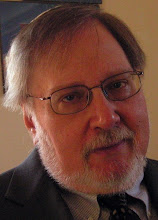I hope everyone had a nice weekend, despite the weather.
The two stories we last week promised to cover are still developing. The large area banks haven't yet made up their minds whether to honor the New Haven identification cards. Details on the work on the cemeteries after the vandalism last April are still gelling. Stay tuned.
Today (July 30, 2007), I want to talk about the atomic bombing of Hiroshima, an event that occurred more than 60 years ago, but is still being debated, especially now when the anniversary (August 6)is close.
Many if not most of the people who debate the decision by President Truman to drop the atomic bomb "Little Boy" on the city, resulting in 70,000 immediate deaths, were not born when the bomb was dropped. In fact, the parents of many of these people were not born or were little children at the time.
For me, this isn't a debate about ethics or strategy. For me, it's way too personal.
Let's let our minds drift back to 1945.
A ship crammed with American soldiers and their gear steams in the sweltering steam bath that is the South Pacific in summer. On deck stands a soldier, a technical corporal, the veteran of battles for New Britain island, the Philippines and a dozen other dots on the map.
The ship, which had been steam purposefully is now steaming slowly in circles, barely making steerage way.
The soldier, like many of his companions in the Amphibious Engineers, knows the sound and smell and fear of battle. He also knows he is about to embark on a battle that would make the others seem like a child's game.
His wife and young son wait for him in Brooklyn, N.Y., and he hopes that his prayers have resulted in orders that mean life, not death. He hopes, but knows the hopes are probably in vain. He knows that he will be sent to invade Japan, and knows the odds of survival are bleak.
Suddenly, he's aware of a change on the ship, like clouds parting and revealing the sun. Smiles start to appear on officers' faces. Rumors start circulating: Something significant has happened.
Then the word comes down -- two super bombs have been dropped on Japan and the Japanese have quit. The invasion is off. The death sentences have been commuted.
After a few hours, after the official announcement, the soldier joins the other officers, both commissioned and non-commissioned, and persuades the company commander to open the now-superseded orders. The death warrants had been signed and sealed, but they, the soldiers, had been delivered from them.
They said the corporal's regiment would lead the invasion of such a place on the home islands of Japan. They said the regiment could expect approximately 100 percent casualties.
The soldier was my father.
Were it not for the atomic bombs being dropped on Japan, he would have never returned, as he did in 1946 after serving in the occupation forces in Japan. My mother and I could not have met him at the railroad. I could not have told him to take off those boots and put on shoes like all the other daddies.
He could not have guided me and my sister and later my step-brothers and sisters, my wife and still later his grandchildren. Thousands of veterans in Connecticut could not have benefited from his volunteer work that led to his induction into the first class at the Connecticut Veterans Hall of Fame.
My father died in 1999, but we had him for 54 years before his burial with full military honors.
Don't talk to me about the atomic bomb and ethics or philosophy. You'll never convince me dropping the bomb was anything other than the right act at the right time.
To me, this is way too personal.
Until next time....
Monday, July 30, 2007
Subscribe to:
Post Comments (Atom)


No comments:
Post a Comment